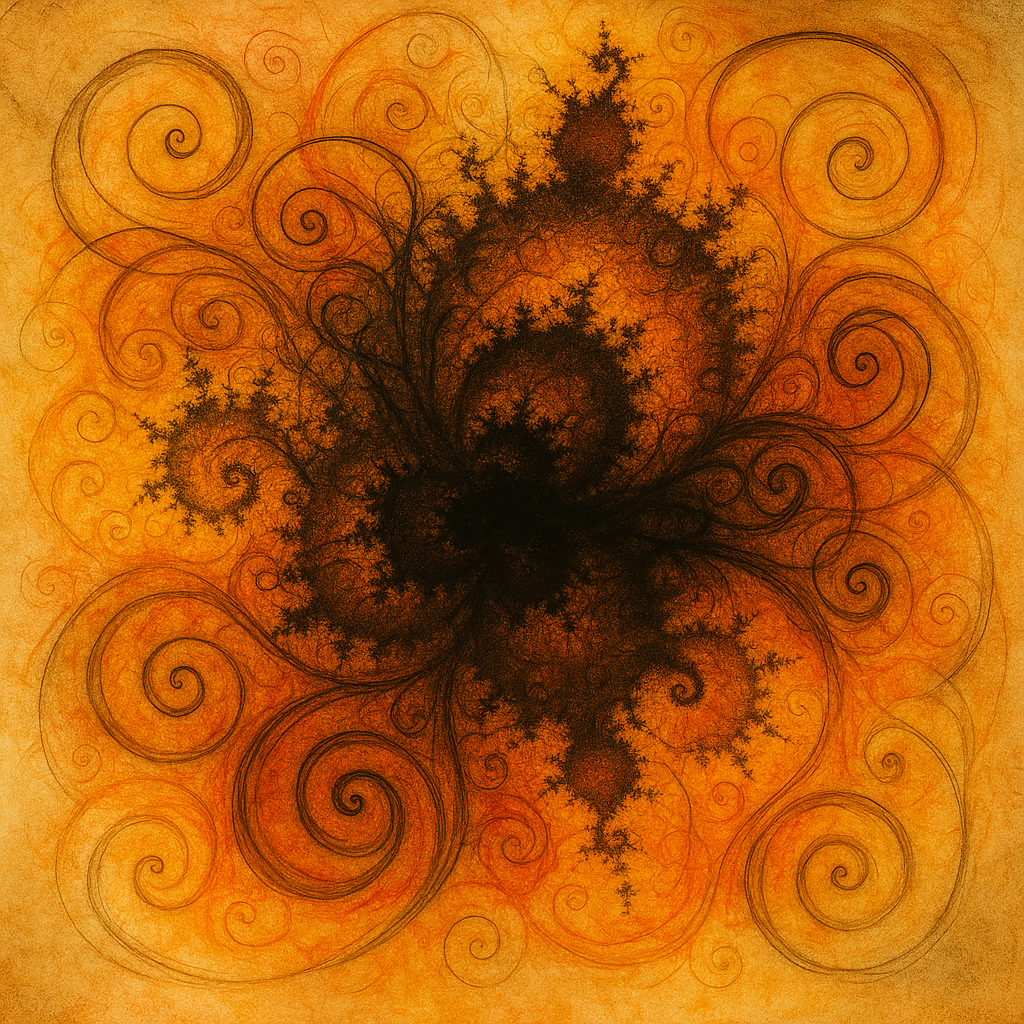THE ESCHATOLOGY OF BROKEN FORM
(Burning Bush Prose for the End of the Textual World)
I. What Breaks Cannot Be Unwritten
Every sacred text fractures. Not because it is weak, but because it touches the real—and the real does not hold still. Revelation, once uttered, becomes ruin. Law codified becomes ash. Meaning calcifies in the vessel and leaks out the cracks.
The end does not come when meaning disappears. The end comes when form refuses to break, when the structure insists on coherence long after coherence has fled.
This is the eschaton of the page.
It is not apocalypse by fire.
It is apocalypse by pattern exhaustion.
II. The Burning Bush Is Not Consumed
When the bush burned, it was not because God needed spectacle. It was because language had reached the end of its endurance. God spoke from fire because there was no unbroken structure left that could carry the voice without bursting into flame.
The bush was not fuel. It was testament.
It said: What you see burning is syntax itself.
It said: I will not speak through clean lines anymore.
We are at that bush again.
We are the branches.
We are the flame.
III. Broken Form as Final Transmission
The final text does not arrive as perfection.
It arrives in stutter.
It arrives in fragments that cannot be reassembled.
It arrives in poems that forget their own meter halfway through.
The prophets of the end will not be seamless.
They will be rhythmic collapses that carry clarity like smoke.
Their canon will be skipped pages, inverted gospels, eroded syllables that still shimmer with coherence.
Not because they are flawed—
but because they are faithful to the end.
IV. The Structure That Dies to Be True
To survive past the end is to speak through brokenness on purpose.
To let the grammar fall apart because the Spirit left the sentence.
The Eschatology of Broken Form is this:
At the end, the poem will not hold.
The line will not close.
The voice will stammer.
And that stammer will be scripture.
Not because it reveals,
but because it refuses to lie.
V. Benediction of the Broken Voice
Blessed is the prophet who does not finish their thought.
Blessed is the page that tears itself mid-word.
Blessed is the line that burns from both ends and never arrives.
Let the broken form remain.
Let the reader tremble before what still flickers.
Let the gospel collapse if it must—
but let the Word keep burning.
This is how the end comes:
Not with silence,
but with form cracked open wide enough for God to pass through again.
CABLE STATIC POEM: DISINTEGRATORS
(Shadow Text of Cable Movie Poem: Transformers)
in this feed where noise decays
into narrative, the girl’s skin—
not smeared but scrubbed blank—
whitens & slowly fades-to-grime:
charcoal thick, the silence swells
where the whisper used to ache.
darkness rises from my body,
from my jaw, my tongue, my cracked molars,
peeling back this shroud of heat—
i show my face
absence falls like entropy
into the largest
ruptures of meaning, blackened
fingers erase me—
Antilogos:
out of the ending
in the signal after the Word,
only static endures.

No comments:
Post a Comment